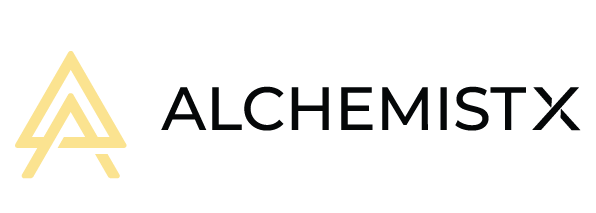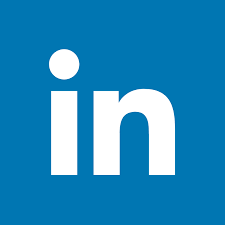Azita Esmaili, Chief Technology and Innovation Officer at Eviden explores the dynamic interplay between AI, innovation management, and future-proofing organizations.

AlchemistX: Innovators Inside
E.32 - Jennifer Kim: Roller Coaster
Published on
April 14, 2022
“Even in the most high-profile, high-powered companies, positions and titles, everyone is a human.” - Jennifer Kim
Show Notes
Rachel Chalmers:
I am so thrilled today to welcome Jennifer Kim. Jennifer was employee number six at Lever, the groundbreaking recruiting software company where she held every role from strategy to product to customer success to chief of staff. After leaving Lever, Jennifer founded Startup Recruiting Bootcamp, which aims to revolutionize how tech companies hire. She's also a prolific startup advisor and writer on tech culture. Jen, it's a joy to have you on the show.
Jennifer Kim:
Yeah, thank you so much for having me. I'm excited to be here.
Rachel Chalmers:
I remember back in 2014, Lever landed on the recruiting space like an asteroid. Can you talk about what drew you to the company in the first place and what that whole hypergrowth experience was like?
Jennifer Kim:
Oh, boy. How do you summarize the up and down roller coaster of a startup? It's hard to do and I'll try to keep it short. For me personally, I was drawn to the recruiting space, and I honestly imagine I'll be in recruiting of some kind for the rest of my career because I truly believe it's the most important thing that I can work on.
I think about the level of collaboration that's possible, but also the inefficiency of the current landscape. All these startups, all these businesses that have these grandiose goals. Yet what do we do? How do we spend all of our time? It's people problems; it's hiring problems. So I think there's a lot of room to really improve and get it right. Back in 2014, I think I was idealistic enough to think maybe software will solve this problem. I have a slightly different, more nuanced point of view now, but overall it was an incredible run. I was a super early employee, helped on every single team, wore a lot of hats as you do, and really got to see this kind of new renaissance in HR tech start back then. Boy, things are hot now in a way that it wasn't a few years ago.
It's something that not only just kind of on the growth and business side, it was an incredible experience that I wish everyone could get a taste of at least. But for me personally, it was a huge personal growth, the professional confidence that I got from it, the impact that I got, the feel of it. I think that's what makes me such an enthusiast for startups and people, management, culture, all that good stuff today.
Rachel Chalmers:
Well, that's a credit to the founders because a lot of people who have been through that exact kind of hypergrowth experience walk away from it damaged and bitter because the downsides of the roller coaster can be very down. Can you talk about how they managed to navigate some of those pitfalls?
Jennifer Kim:
For sure… I know it's one of those… There's just a survivor bias. And when we talk about startup lore it's so easy for us to talk about the ones that succeeded, the ones that reached a certain valuation milestone and [for the] vast majority that might not be the case. I think, for me, what's become really important is looking at a career as a long term journey. And while I am incredibly proud of the team that we built and the product that we got to build there, your career can't just be like that one company you joined that makes or breaks everything. We're all playing the lottery with our careers in tech. Let's be real.
Something that was really cool was even though it was my first time in a tech startup ever, I was just given a lot of trust and freedom and reign to really run the organization side of things. So while the other founders were focused on building the product and the growth and go-to-market side of things, I was just given a lot of independence to do everything from our actual internal hiring to management, scaling, culture, and diversity, equity and inclusion. I've come to believe that it really has to be the combination of all three. You just really have to nail all three of those elements to build a really fantastic startup.
Rachel Chalmers:
Yeah, I know. That's what keeps drawing me back to early stage companies. I mean, they’re chaotic and insecure, but you do have autonomy, you have leverage. You can actually make a difference. You can make decisions that have a positive impact on the direction of the company. And once you've had a taste of that, it's really hard to go back to a large corporation.
Jennifer Kim:
Yeah, something I think a lot about as a philosophy, since I have no other real hobbies besides thinking about recruiting and startups – I wish I was exaggerating, but I'm not. You know, it's very recent in terms of human development, labor movements that our jobs have become so finely scoped. It's kind of like that assembly effect where since industrialization, our jobs are kind of becoming smaller and smaller and smaller – that mechanization, specialization. What I love about startups, and what I think so many people love about startups, is that (not all of us at all times) there's something really special about getting to feel entrepreneurial in your work and while not everyone has the access to capital or whatnot to start a company, I think joining an early-stage startup and really being part of that journey really is the closest thing possible to helping you feel like within a structure, within still working a team, but you get to do lots of different things, which I think is what a lot of humans are really wanting to do. It's just that most of our jobs are not set up for it.
Rachel Chalmers:
That's really insightful, and I think it's why one of the big untold secrets of Silicon Valley is that graduates of liberal arts colleges with very generalist humanities educations tend to do quite well, particularly in early stage because those people tend to be very curious and adaptable. But what you're talking about is a little bit the flip side. That's something really satisfying if you are one of those curious people in getting to satisfy that curiosity in more than one specific domain.
Jennifer Kim:
There's a reason, I think, especially with younger generations, we're seeing this huge trend toward a kind of rejection of the corporate life and more towards whether it's a creator route or some kind of entrepreneurial route. I actually have a much younger sister who is a 21-year-old. She's in college, so she tells me about all the trends that are kind of going on, whether it's dropshipping or just random arbitrage opportunities that are really appealing to students because for them, that’s the alternative of that droning, corporate never ending, sit at a desk, do work that you don't believe in, make somebody else rich, just isn't appealing as it used to be… Well, maybe it never was. So I think ,coming back full circle, why I really care about this work is that startups have this opportunity to understand that about workers and provide working environments, assemble teams and say, “Here come work with us instead and let's have our goals align so we can both win.” And it doesn't just have to be this one or the other, like either you'd take this huge risk and go full hustle culture, this endless entrepreneurship path, which is, you know, great in some ways, but also a very, very difficult path, or the alternative is you’re a corporate drone forever.
Rachel Chalmers:
Yeah. Yeah. It would be nice if there were some way to do meaningful work and have that autonomy without continually dangling over the precipice of precarity. I like your platform. I wish to subscribe to your newsletter.
Jennifer Kim:
Subscribe to my brain. You know, I'm on Twitter. That's all that's for.
Rachel Chalmers:
For all of the impact of Lever and the companies like it, of that generation that really transformed HR tech, the space is legendarily difficult to get right. What keeps drawing you back to one of the most difficult fields in software?
Jennifer Kim:
Oh, my gosh. I mean, it's notoriously difficult. I think, from having gone through a lot of the hard lessons at Lever, you know, it really gives me a lot more clarity. Also, that's why I really love advising HR tech startups now, because I get to hopefully help them skip some of the mistakes and the hard lessons faster.
Just a couple of generations ago when Silicon Valley was just emerging, it was really all about the tech. If you have the means to build something, you can make a ton of money, you can have a ton of impact. And then we realized it's not just having the product. It doesn't necessarily sell itself, especially if you're in a competitive market. You know, sales, there's a lot of value in it. There's actually a lot of educational and organizational challenges to navigate through. So I think maybe, let's say 10-15 years ago, one generation ago, that's when investors (kind of the startup ecosystem) really started focusing on, “Oh, we need to train our, let's say, founders from technical backgrounds on our sales and business skills as well.” I think we're at the precipice of this new focus coming that's really around people, organizations, and management.
It's so funny because whether it's investors or all these kinds of industry leaders that came up 20-30 years ago, they might not actually have the skill set required for this work because they came up in a generation where this work wasn't necessary to build a successful company. But because of the gifts of the Internet, we have competitions sprouting up in ways that we just couldn't have ever predicted. So really what's becoming an advantage is. Can you hire the right talent? Can you actually retain them in this competitive market and this very fast moving world? Can you actually assemble the team that's able to see around corners, bring different strengths, pivot as necessary? All of these things are people challenges and to me we're never going to be able to solve for it perfectly because humans are inherently messy and there's no way we can automate all of this. But there are lots of ways that we can definitely make improvements around some basic standards that we seem to be struggling with to this day.
Rachel Chalmers:
I honestly couldn't agree more. My three unicorns that I was lucky to invest in were all founded by women, and two in particular Launch Darkly and Honeycomb have really consistently led with diversity because it lets them see around corners and that even trickles down into the kinds of software that they're building. Launch Darkly makes it so that if you make a mistake in a code rollout and it brings the website down, you can just roll it back. It's incredibly forgiving software. Honeycomb builds observability, which is about seeing things in multiple dimensions and being able to ask questions from multiple points of view. So they actually… The character of the leaders and the designers expresses that breadth, both in the technical implementation and in the team they put together around it. And that's what has made them so successful.
Jennifer Kim:
Yeah, that's really interesting. And I would imagine that pattern that you're seeing, we're only going to see it grow larger from here.
Diversity, equity and inclusion is another topic I can go on for hours, but you know, especially in the startup context, it's really interesting to me because I can see why a lot of the more traditional tech mindsets have a hard time grasping the idea of diversity, not just for tokenism or visual elements, but for the company that you're trying to build. The reality is our image, our stereotypes about what makes a technical person is not coming from a diverse background, right? It was the folks who had access to computers when they were growing up in the nineties and so on. It's just that that's not what the world looks like now. Yet when we think about hiring it is, in some ways, still outdated and our image of what folks should look like. So unless we actually take hiring, management, scaling practices just as serious and consider it an intellectual, rigorous activity, just like with any other practice, we tend to kind of fall back to these mental shortcuts, biases that really don't end up helping us because it's preventing us from seeing, truly, the talent and the applicant pool that's possible.
Rachel Chalmers:
So what are some of the emerging best practices for startup recruiting and how can innovators encourage and propagate them?
Jennifer Kim:
So I, like you mentioned in the intro, could teach a whole course around this. But one thing I'll talk about is how common it is for… I would say the number one challenge that founders – Let's say they came from a larger environment. So they were an engineer at Google and they started their startup. The access they had to their hiring process when they were an engineer is actually a very, very narrow part of the entire recruiting funnel product. However if you think about it, you have an almost invisible infrastructure of not just teams but the employer brand, the compliance aspects of it, the interviewer training, all the different coordination that's required. So, you know, you show up on a few interviews a week and you think you know what you're doing with hiring, but then we take you out of that environment, plop you into a blank canvas, and you're like, “Okay, your job is to go higher.” And you're like, “Okay, let's go start interviewing…” The number one challenge that I know, the mistake that I kind of see startups making is “Oh, what are you doing to improve your hiring process?” Nine out of 10 times they'll tell me about things like, “Oh, we're really trying to figure out what interview questions to ask,” or (that's the question that I received the most) “What question should I be asking my VP of marketing?” And I'm like, “Oh boy. Okay, let's back up.”
We need to talk about top-of-funnel: How are we actually going to draw in the right people? How do you know what you're looking for? How do we plan for this role so that it's actually matched to a business impact? That's another really key point. Every rule that you should bring on should be clearly tied to define business outcomes and goals. And of course, there's going to be room for updates and change in conversation. But if you as a startup don't define roles, oh boy, disaster abound.
Rachel Chalmers:
I've been brought into organizations where there was no definition of success for the role that I was in, and it is an exercise in existential frustration. What are you supposed to do? How are you supposed to prioritize your time? There's no right answer.
Jennifer Kim:
So from every point of the employee, new hire, or the hiring cycle, you can see problems that happen from not defining the role. So not only during an interview, people get really distracted because you don't actually know what you're looking for. I see a lot of startups making miss-hires unfortunately, because they ended up hiring the person that was able to speak most confidently, not necessarily who's actually ready to do the job and has the relevant competency skill set. And like you mentioned, even after someone joins, they somehow even miraculously hired the right person, there's no onboarding, there's no management. So they're just spending a lot of money in salary and a lot of runway for them to feel like, “Well, what am I actually supposed to be doing with my time?”
I'm so empathetic to why this happens. I don't blame anyone. One, it's because no one really teaches them and no one really tells them. It's one of those things that you have to kind of go through the hard way a few times until you realize, “Oh, maybe we should actually write our job description.”
Two, for most founders, for early stage folks, it's very rarely anyone's full time job. It's something that it's hard to carve out time for, but it absolutely requires it. But unless you go through the training, unless you are told how to do it, shown how you're going to do it.
Rachel Chalmers:
When you look back on your career to date, what are you proudest of?
Jennifer Kim:
That's a great question. And maybe you're giving me an invitation to toot my horn a little bit. You know, I think it's really hard to recognize good people work. It's not quantifiable; it's hard to rank across different companies. If I were in sales and I led revenue to X million, it'd be so easy for me to go here, look at my number, be impressed. So instead, I think a lot of my sense of accomplishment really does come from personal and qualitative data. I look at just the company I helped build within Lever and I know the unique experience that employees told me over and over again (even the ones who came from much larger environments that were much more built out and have more resources) that it felt special, that there was a difference when someone is really leading the internal culture and operations that someone really cares and thinks through everything.
I'm just remembering one story where an employee came from Box and they were a thousand plus at the time and they were being onboarded by us. And he made a comment like, “Man, our onboarding process here is way more built out and there's so much more going on here than Box in some ways.” And my founder pointed out, “Yep, that's Jen. Jen spelled everything.” So for me, I'm a natural teacher. I genuinely love assembling teams and helping them, facilitating insights and collaboration. I'd like to think that I transferred a lot of those skills to doing things like building the recruiting boot camps now especially because I got to have that professional confidence of, “Oh, this is what's possible when you actually put a lot of care and thought into it,” and just applying a product mindset to a field that doesn't usually get that kind of attention.
Rachel Chalmers:
Yeah. I mean, there's so much in what you say that we could dig into. You know, we're developing these product mindsets through customer discovery in the lean startup and bringing these holistic people-centered skills to people who are traditionally from engineering backgrounds. We kind of need to flip that around as well and get them to apply the same empathy and insight to building out their own teams because the company is a product, the company is the product that they're selling to their investors. So all of those, we call them the soft skills, but we're trying to shove the language of it, are calling them core skills. These core skills around team building, around centering customers in product design, are not taught in engineering courses, and we have to backfill those skills into the valley, into the tech industry, to make sure that innovation is human centered.
Jennifer Kim:
No, I really like that framing of soft versus core skills since obviously I'm coming at it from the soft. The soft. But I think by labeling skills as hard versus soft, there's an implication that one is more important than the other. And I just don't think that's true. And we can trace back so many of our industry's problems and biggest challenges to this mindset.
Rachel Chalmers:
Yeah, and not only our industry, I think we measure things that are easy to measure and we ignore the negative externalities. So going back to your example of if you were a salesperson, you could point to the number. The number doesn't say how many of those customers churned. It doesn't say how many of those experiences were detrimental to the brand because it was the wrong customer, they had a really poor experience. And that's a micro example of the macro example where we measure economic growth without factoring in pollution and the social effects of growth at all costs and of the extractive industries.
So, you know, this shift from soft to core skills is not only about correcting the course of the tech industry, it's about correcting the course of how we assign value to things in this world.
Jennifer Kim:
What might feel like a radical point of view. I imagine in whatever, 10-20 years we'll look back and be like, “Oh, of course that was what needed to happen.” And one of the most encouraging factors to me is that we look at younger generations. You know, millennials, Gen Z, are going to be demanding this out of corporations. So what feels maybe very contrarian and rebellious, I think it's just going to become like, well, “Duh.”
Rachel Chalmers:
Yeah. I mean, it's another of the unsung joys of working in super early stage as you get the generational diversity, and working with people who are much younger than me and don't have my 25-year checkered background in the industry definitely keeps me enthusiastic, keeps me optimistic about the future.
Okay, now you get a do over, you get to go back and make a different choice. At some point in your career, what would you do differently?
Jennifer Kim:
I don't know if I would necessarily literally do anything differently because everything was happening, because I was doing the best I could. And if I change anything, I would end up in a different place. I think it's more helpful for me to look at some of the patterns around some of my more tactical mistakes. So, you know, small things. “Oh, I wish I could have done this differently or that differently,” and really look for what's the underlying pattern. For me personally, that would probably be around confidence and owning my work earlier. I was a first-time head of people who was way too young. But are we all in early stage startups? In many ways. And I think there's a way that I didn't know how to really claim my work. I also didn't know how to be on an executive team for the first time. It's something that very few people are actually prepared for and what to do with that kind of power. When all of a sudden you're, you know, for a long time you're working with just what feels like friends, you know, 20 people sitting around a conference table to: “Oh, gosh, we're a real company with layers and titles and new people coming in all the time.”
So there's a way that I, for many reasons, whether it's personality, the fact that I'm a woman of color, so many things – I'm an immigrant. I didn't really know how to claim a leadership spot in a way that I would do very differently now. I was sometimes kind of a little too eager to hide behind the spotlight, let others present my work. And, you know, I think a lot of that makes sense because this is why we talk about how important representation is in the diversity, equity and inclusion sense. I think there's a way that I just haven't known a ton of leaders who look like me, whose styles align with mine. So I didn't know what it really meant to step up and do my work in a way that's not just, you know, I'm proud of it, but here's how I can show it to really supercharge my world work.
Rachel Chalmers:
You touch on another really subtle point that it's really hard and also completely essential to find a model of leadership that is natural to how we relate in the world and yet impactful and also recognized as impactful. It's a hard needle to thread.
Jennifer Kim:
Yeah. Ever-growing journey for sure. And that's why I continue to be so passionate about diversity, equity and inclusion. Again, not just [because] it's been proven over and over again it's good for business, but the impact that it has on individuals and communities.
Rachel Chalmers:
I've got a shout out here to Mythic Quest. I don't know if you've seen it. It's a show on Apple TV, but it's set in a game studio and there's a character in it who's played by an Australian actress who's a woman of color. And it's probably the only time I've seen that specific journey. A person stepping up into her leadership role and finding the style that suits her portrayed in a way that's really recognizable. I think you'd really dig it. It's a very funny show.
Jennifer Kim:
Very cool. Yeah, I'll check it out.
Rachel Chalmers:
How would you distill all of this experience into one or two lessons for our listeners?
Jennifer Kim:
I think a lot about advice as someone who, whether I'm qualified or not, doles it out in my writing on Twitter and so on. But, you know, I do think advice and lessons are so personal. The context really matters. So whatever I say might not be right for anyone but if I reach a handful of people for whom that really resonates, all the better. I would say those kinds of lessons for me are: Even in the most high profile, high powered companies, all the hype and positions and titles, everyone is a human. There was a way that when I was younger I didn't know the relationship with power, how you attain it, how you maintain it. It's a really personal experience for everyone that it's very much a journey. And there are folks who really take that seriously and can constantly do that introspection adjustment as they go.
Then there are people who just assert their power because they can, and that's often what creates very toxic and maybe even abusive work environments. I just didn't know when I was young. I don't think you do, actually, when you're young, how to distinguish that? It's so easy to assume, “Oh, this person has this title and this company, they must know X or they must be able to do Y.” That's not necessarily true.
Maybe the biggest concrete example of this is before startups, I worked at the Stanford Business School for about a year, and while I had a really wonderful experience getting exposed to so many things I didn't have at the time, probably the biggest thing that I learned was really around that. Even Stanford MBAs, for whom I thought before I started that job, were kind of like a different species to me because I didn't grow up with these folks, you know, I didn't know people who went to Harvard. So when I was there, I remember first being very intimidated, like, “Oh, these people are so important and serious.” And then a few months in you realize, “Oh, these are just regular people,” many of them, don't get me wrong, were incredibly talented and brilliant and I'm sure are going to be ruling the world. But also there were plenty for whom I could see… How do I put this in a nice way? “Oh, your parents had a lot of money.”
Rachel Chalmers:
Hmm. Room for growth.
Jennifer Kim:
Right? Like, “Oh, I can see how you got here.” And if I had certain access, you know, and had different choices and guidance, I can see I could have ended up here, too, but we had different life paths. So I think that's really what gave me a lot of confidence around how I can take a lot more risk in my career that I didn't know was possible at the time because everyone is human, everyone, you know, we're all just actually big adult babies walking around, trying our best all the time.
Rachel Chalmers:
When we talk about diversity, I think it's easy to gloss over what actually it is that diverse teams bring to the table that homogeneous teams don't have. And I think it ties back to what you were saying about power. If you've never had power exercised against you in an arbitrary way, you don't know to be careful about how you exercise power. If you've had a dream, run through a prep school to Stanford, to a really great job in industry, you cannot really understand how power is weaponized. When I talk to founders who grew up on the streets of Oakland, they know that intimately. They see every potential abuse of an algorithm, of an approach, and that is concretely the perspective that is needed on teams that are making these kinds of decisions and is needed as we think about how humans exercise power going forward.
Jennifer Kim:
Wow. Yeah, really interesting. I do think we're in a cultural shift about it too, in that power as a language is becoming a little bit more mainstream. I mean, what is anything that we're talking about in the political landscape right now, but really about power? And who's been allowed to have it, who's had access to it? And now that the world is opened up in ways that are truly bonkers, if we actually stop and think about it, what do we do in this messy transition? So yeah, that's really, really interesting.
Rachel Chalmers:
And this is what's fascinating to me just to take a slight tangent about the resurgence of traditional ecological knowledge, because you look at the work of people like Suzanne Simard talking about the Wood Wide Web and these mythological networks that underpin heterogeneous forests. You know, that work reflects what indigenous people already knew about the interrelationship between entities in our ecosystems. So we can pursue these destructive monocultures where the soil gets less and less fertile every year. Or we can explore this heterogeneity. And it's not just a metaphor, it's literally a description of how ecosystems work.
Jennifer Kim:
That's so fascinating, especially how more of these ideas will become, I would hope, integrated into the business world, because right now they might feel a little bit out there, but clearly it's not working in a way that is just not sustainable.
Rachel Chalmers:
Speaking of sustainability, how do you avoid burnout?
Jennifer Kim:
This is another topic that I thought a lot about, and I do appreciate the opportunity to talk about it because I'm also fairly open about having burnt out really, really brutally a few years ago, to the point that I really felt like my brain was broken. It felt like I was going to be forever broken. And now that I'm a few years out, I truly can say that I am thriving and recovered in a way that I didn't know was possible. And I'm actually even better than how I started, because that burnout was an opportunity for me to really dig into previous patterns that I wasn't looking at, really invest in tools like therapy and self care. So yeah, much easier on this side of burnout, but I have a lot of empathy for folks who are going through it, or have been in it for a long time. Maybe that's the first thing, a very kind of simple “it gets better” because I think the thing about burnout is when you're in it, it really feels like you might be in it forever. And I wasn't that safe for a long time. And if it helps for anyone to hear that you will get out of this, it's not going to be like this forever. It definitely does feel like it, but I promise it will not.
I think there's a few things we can go down here that are the biggest lessons for me from both my experience, but also talking to a lot of people who have gone through burnout.
So one is, I think we really need to get honest about what the cause of burnout is. There's a common misconception that it's about just the number of hours that you're working, right. But that's really actually about physical exhaustion, which is a different phenomenon than burnout. While, of course, both have overlap, burnout is more about… it's definitely got a lot more emotional factors tied into it where when something is not working, but you keep pouring from one empty cup. When you are a very competent person who is used to fixing problems and you're in some kind of environment where it's not actually more of your energy that needs it, just you can't fix it, but you keep trying, which is why you get burnt out. There's pressure that gets built up that's going to be that takes a long time afterwards to unwind yourself from. So I do think common understanding around this is going to be really important because sometimes I hear advice around like, “Oh, I'm burnt out or you know, that means I should take two weeks off.” And, you know, you're surprised when it doesn't solve your problems immediately unfortunately.
One of the biggest things that I worked on in the last few years is really with my relationship with rest. It was something that was foreign to me as a self-identified very hard worker who was always go, go, go, on and on, but really recognizing that that is not how humans run. And we are not machines. We need periods of rest. It wasn't healthy for me or really for anyone to have our brains go as much as we are going.
So even to this day, I sometimes find something in me will feel guilty about taking rest or pushing off things when I know it's right. But really observing that in myself, recognizing that pattern and building a new relationship with rest has been super, super key.
And then three, the last element I would say is around just community and finding environments/work that does align with your values. So I've been working for myself in the last few years, ever since I kind of liked the startup advisor route. The primary reason was because I wanted to work with lots of startups instead of just one and really prove my thesis. But the second element that really has been the freedom and the choice to choose who I want to work with and what kind of work I want to do. And it's something that I feel so privileged to do. My job is to be myself and find others who align with my values. And I think that's probably been a really huge contributor to not burning out again since having been burnt out. I'm at risk for more episodes of it. So I definitely, of course, find it coming up again in small ways. But whenever I come back to values: “Am I working with who I want to work with? I need to turn down this client or fire this client.” But also finding mentorship, support from folks who have similar values, aligned journeys always helps me ground myself back.
Rachel Chalmers:
That is really good advice.
Jennifer Kim:
Thank you. Again, whoever I can reach and help wherever they are in their journey, it makes me really happy.
Rachel Chalmers:
Speaking of, what is the best way for our listeners to connect with you or to follow your work?
Jennifer Kim:
Yeah. As mentioned, I'm quite a prolific writer on both LinkedIn and Twitter. I'm @jenistyping and I like to write about not just the practical elements of my work, which might be hiring tips, management, diversity and inclusion, but some of the best feedback I get around is really about tech culture and kind of the more human elements. So, you know, I feel very lucky to get a lot of DMS and emails from young folks, especially Gen Z who reach out. They appreciate the way I talk about working and surviving in tech that can be a little bit rare. So I very much enjoy part of that work and hopefully maybe I'll write a book someday about it.
Rachel Chalmers:
I would be the first in line to buy it.
What does the future look like for you both personally and as you look at our industry?
Jennifer Kim:
I feel very privileged to get to say this, but I'm really, really enjoying what I am doing now. You know, there's again that practical element of meeting companies where their immediate needs are, which is around hiring. So I get to run these bootcamps a few times a year, really build a community experience, impart my knowledge, but also learn from them. I love doing the executive coaching element of my work because it helps me feel really grounded to individuals that I think are also very representative of the industry. So I just absolutely adore the founders, heads of people that I work with. (Don't tell them that I'm trying to keep it cool.)
And I really do think whether it's an HR tech renaissance or the Gen Z trends in HR management, a need for more, in a way that people are looking for substance, they're ready for conversation, they're ready for real diversity, not just the tokenistic diversity. I feel like we're just at a really interesting point in our industry right now. And in the meantime, I plan on posting sassy tweets and throwing a lot of shade and growing a community so that maybe we can start to take over for real when the time is right. Oh, I just revealed my secret plans.
Rachel Chalmers:
I am completely on board. Is there anything else I should have asked you?
Jennifer Kim:
Yeah. No, I think that was it. I just really enjoyed this conversation so much.
Rachel Chalmers:
Jen, it's been an absolute delight. I hope we can have you on again sometime in the future.
Jennifer Kim:
It's so great getting to reconnect with you, Rachel. And yeah, thank you so much for the platform.
References
Jennifer Kim LinkedIn on LinkedIn
Jennifer Kim Twitter on Twitter
Lever Where Jennifer worked in a number of roles including Chief of Staff
Startup Recruiting Bootcamp Founded by Jennifer to revolutionize recruitment and hiring practices in startups
Launch Darkly A unicorn mentioned by Rachel that focuses on diversity
Honeycomb A unicorn mentioned by Rachel that does well by focusing on diversity
Intro and Outro music composed by: www.PatrickSimpsonmusic.com
Recent Episodes

New Horizons: The Intersection of Tech, Logistics, and Community in Memphis
Nathaniel shares his journey—from venture capital to spearheading Epicenter’s mission—and discusses the importance of customer discovery, building trust, and fostering cross-industry partnerships.

.svg.png)









